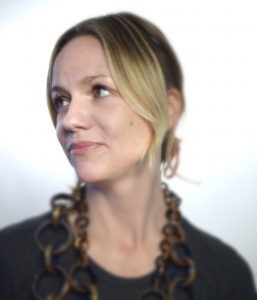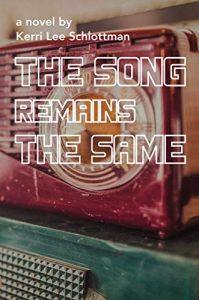A Tribute to the Inbetweens
A Tribute to the Inbetweens
By Kerri Schlottman
 It looked like any other aging brownstone in the East Village with its chipped facade, weathered cement stairs and bars on the ground-floor windows. I’d walked past it hundreds of times and never imagined that it detained dozens of teens from the neighborhood. Inside, they piled on second-hand couches, crowded in groups watching TV or huddled around puzzles set out on card tables. They were not allowed music or phones. Mirroring the racism of the adult mass incarceration system, they were all Black and Brown, nearly all boys as well.
It looked like any other aging brownstone in the East Village with its chipped facade, weathered cement stairs and bars on the ground-floor windows. I’d walked past it hundreds of times and never imagined that it detained dozens of teens from the neighborhood. Inside, they piled on second-hand couches, crowded in groups watching TV or huddled around puzzles set out on card tables. They were not allowed music or phones. Mirroring the racism of the adult mass incarceration system, they were all Black and Brown, nearly all boys as well.
Their “crimes” were petty strikes for things like curfew violations, weed possession, a small theft here and there, all things teens in whiter New York City neighborhoods were no doubt doing without such repercussions. I’d been hired to teach them art even though I had no experience teaching art, a minor technicality for the facility’s program director who felt my adjacent experience working at an arts organization in Tribeca was good enough. I needed the money. The arts job barely cut it when it came to New York City living. Returning to my hometown of Detroit was not an option. I’d only recently made the move; there was no going back now.
Inside, the facility smelled like a mash up of a stale school cafeteria and a yeasty boys’ locker room. There were mice everywhere. They’d scurry over our feet during our sessions so often that we would have to stomp our shoes every few minutes to scare them away. I came to know the teens well in my time working there. Some of them came and went in the months of my employment, others were long haulers. They shared stories about their families, girlfriends, things they liked to do.
Most of them had a feigned hard edge, not dissimilar from the low-income kids I’d grown up with, but also with an obvious tenderness. In one session, I had them take turns casting each other’s faces in plaster. They smoothed down the edges of the materials on their partner’s faces with utmost care, gently and delicately, and then marveled afterward at their newly formed masks. It was, for most of them, the first time they had really studied their own faces. They dragged their fingers over the edges of their plaster cheekbones, around their lips and noses. I knew from doing this exercise myself with an artist friend how oddly powerful it could be. I too had turned my own mask around in my hands, surprised by the contours of my face, somehow knowing myself a little bit more from it.
Sometimes my class landed after family visitation and the teens would filter in sullen and emotional. For some, the truancy charges that landed them there were not for nothing; they had younger siblings to care for as their parents worked. Their incarceration disrupted entire familial dependencies. The multiple chains of systemic failures that resulted in their detainment became quite clear. It was not my first experience with these issues. A couple of years before, I had taught literacy to eighth graders in Detroit who were at risk of expulsion or forced transfer under George W. Bush’s No Child Left Behind Act. Like the alternative to incarceration program, NCLB did not seem to live up to its expertly marketed name when in action. I had a front-row view of the ways such bandage ideas continued to fail the kids they were meant to serve. The ways they swept racism and income inequality under the rug.
Memories of these teens came back to me while writing my novel Tell Me One Thing. My protagonist Lulu is, too, a product of generational disadvantage and the sheer unprotected’ness that too often accompanies low-income communities. I knew this personally from growing up in a struggling Southeast Detroit neighborhood. It takes an exceptional amount of neglect across the board for an eighth grader to reach that level of education while illiterate, just as it takes an exorbitant shortsightedness, cruelty even, to detain teens for common misbehaviors. For reasons of survival, my young character Lulu makes one poor decision after another, like these kids, not in a vacuum but in reaction to her environment and in response to the actions and inactions of the adults at large in her life.
Set primarily in the 1980’s, before Clinton expedited mass incarceration and Bush solidified it with sentencing disparities, Lulu is forced to serve time in a juvenile detention center. Such experiences, like the teens I worked with, chart a course for youth. The school to prison pipeline is a well-documented problem, an architecture of privilege. In my own upbringing, the threat of “juvie” loomed above our community. The tendrils of the carceral system have far reach into disadvantaged areas. Here and there, the boys of my adolescence would disappear for a period of time only to re-emerge from their stint away a little darker, a little more untouchable.
Still, I think about our lesson in plaster mask-making and the gentleness with which the boys touched one another’s faces. I think about the pride in an eighth grader’s face when he was able to sound out the sentences of a children’s book. I think about my own early life, the challenges of being raised by a single mother, the shoddy, chronically underfunded public school system that failed me time and again, but also the hope that can sometimes outline self-preservation even as the cards continue to stack against you.
Kids have incredible resilience but the fact that they need to ought to teach us a lesson in our society. Lulu and her story are a product of those sentiments. She is part of me, and she could have been one of them, carefully caressing the messy casting on her partner’s face, slowly lifting it off once dried, handing it over as if it is a precious object, which really, it is after all.
—
Bio
Kerri Schlottman’s novel Tell Me One Thing is forthcoming from Regal House Publishing on January 31, 2023. She is the author of three other indie published novels. Kerri is a native Detroiter who has worked with artists in various capacities since 2001, most recently at Creative Capital where she helped to fund projects by authors Maaza Mengiste, Elissa Washuta, Randa Jarrar, and Meng Jin. She has also been a factory worker, a literacy volunteer, and taught art to incarcerated youth. Kerri loves a good novel, live comedy, and documentary films. She lives in Jersey City with her husband, their beloved dog Jupiter, and many, many books.
https://www.kerrischlottman.com/
Twitter: @KerriLeeJC
IG: @kerri.schlottman
TELL ME ONE THING
Outside a rural Pennsylvania motel, nine-year-old Lulu Belnap smokes a cigarette while sitting on the lap of a trucker. Art school grad Quinn Bradford is passing through on a road trip and captures it. The photograph, later titled “Lulu & the Trucker,” becomes a seminal piece that launches Quinn’s career, escalating her from a starving artist to a renowned photographer.
In a parallel life, Lulu struggles to survive a volatile home, growing up too quickly in an environment wrought with drug abuse and her mother’s prostitution. Decades later, when Quinn has a retrospective at the Whitney Museum and “Lulu & the Trucker” has sold at auction for a record-breaking amount, Lulu is surprised to find the troubling image of her young self in the newspaper. She attends an artist talk for the exhibition with one question in mind for Quinn: Why didn’t you help me all those years ago?
Tell Me One Thing travels through the 1980s to the present day, weaving dueling narratives of the protagonists’ lives and delving into New York City’s free-for-all grittiness while exploring a neglected slice of rural America.
Forthcoming from Regal House Publishing, January 31, 2023
THE SONG REMAINS THE SAME
 The Song Remains the Same spans two generations in Detroit and chronicles the coming of age of its mother and daughter main characters. Shaped by the historical, social and political climates of their times, the women grapple with the realities of friendship, love and loss, and the beauty of finding meaning in the midst of the complexities of being alive.
The Song Remains the Same spans two generations in Detroit and chronicles the coming of age of its mother and daughter main characters. Shaped by the historical, social and political climates of their times, the women grapple with the realities of friendship, love and loss, and the beauty of finding meaning in the midst of the complexities of being alive.
 Two very different tales unite to create a forceful multi-generational novel that shows that throughout time and despite many seeming disparities, there is a similarity to every generation and an inherent humanity to all experiences.
Two very different tales unite to create a forceful multi-generational novel that shows that throughout time and despite many seeming disparities, there is a similarity to every generation and an inherent humanity to all experiences.
BUY HERE
Category: On Writing
























Thank you to Kerri for this frank and touching essay. I look forward to reading your book. I truly love the content on this site! Thank you, WWWB!